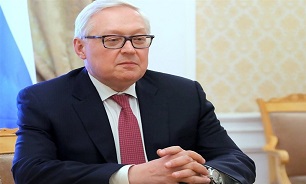Russia Rules Out Extension of UN Arms Embargo on Iran
 "For us, the case of the existing ban on arms deliveries to and from Iran was closed with the adoption of Resolution 2231. The embargo regime expires in October this year," Ryabkov said on Thursday, according to Sputnik news.
"For us, the case of the existing ban on arms deliveries to and from Iran was closed with the adoption of Resolution 2231. The embargo regime expires in October this year," Ryabkov said on Thursday, according to Sputnik news.
He criticized the US for its selective approach to Resolution 2231, noting that Washington itself had stopped adhering to its provisions two years ago and has since spared no effort to prevent other nations from remaining in compliance with the resolution by introducing unilateral sanctions.
"Instead of discussing which provisions of Resolution 2231 could be used to achieve certain political goals, the US would be better off ensuring the full and comprehensive implementation of the provisions of this resolution, and return to full compliance with the JCPOA”, the senior Russian diplomat said.
Recently US Secretary of State Mike Pompeo said Washington technically remained a “participant” in the deal, known as the JCPOA, in order to use a mechanism embedded within the accord to make the UN maintain an arms embargo on Tehran.
“We cannot allow the Islamic Republic of Iran to purchase conventional weapons in six months. President Obama should never have agreed to end the UN arms embargo,” Pompeo claimed. “We are prepared to exercise all of our diplomatic options to ensure the arms embargo stays in place at the UN Security Council.”
In May 2018, US President Donald Trump unilaterally pulled his country out of the 2015 nuclear deal between Tehran and world powers, in defiance of global criticism, and later re-imposed the sanctions that had been lifted against Tehran as part of the agreement.
In response to the move, Tehran has so far rowed back on its nuclear commitments four times in compliance with Articles 26 and 36 but stressed that its retaliatory measures will be reversible as soon as Europe finds practical ways to shield the mutual trade from the sanctions.
